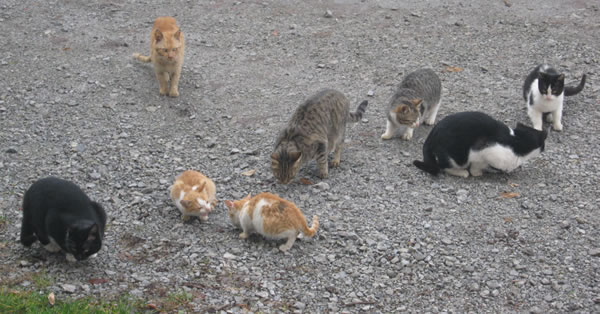Wellington City Council has led the country by including cats in their Animal Bylaw, making microchipping of cats mandatory. Now we have our next opportunity to move towards a Predator Free Wellington, with Upper Hutt consulting on their Animal Bylaw.
Pet cats are valued members of a family, but cats, both owned and unowned, can pose a threat to native wildlife, including birds and lizards. Cats also pose a problem for some neighbourhoods by fighting, soiling and spreading disease. All major players in the conservation and cat welfare space agree that the ideal response to all these problems is to ensure that all cats are responsibly owned. The only question is how we get there.
Microchipping pet cats would be a good first step; it is good for native wildlife and good for cats.
At the moment there is no easy way to identify an owned cat from an unowned cat so it is almost impossible to manage stray and feral cats living near populated areas. This would mean in areas where stray cats were a nuisance, such as near sensitive wildlife areas, restaurants or playgrounds, stray and feral cats could be controlled.
Any cat found with a microchip would be returned to its owner safe and sound, along with conservation educational material. If the cat is unowned (no microchip), it will ideally be rehomed, and regardless of its fate the cat must be treated humanely as required under the Animal Welfare Act 1999.
For the Council’s purposes, compulsory microchipping would allow them to deal with cats that are found in biodiversity hotspots where native birds are breeding. Places like the Akatarawas, Kaitoke and Trentham Memorial Park are all biodiversity hotspots with large populations living nearby. Currently in these areas it is very difficult to manage cats without putting pet cats at risk. Microchipping would change that.
Microchipping also helps protect owned cats. The New Zealand Vets Association and SPCA have long supported microchipping as a way to protect cats. After the Christchurch earthquakes approximately 85% of microchipped cats were returned to owners, compared with 15% of cats without microchips. As pet cats are often seen as part of the family, microchipping plays an important part in keeping the family unit together during times of disaster.
In the long term the constraints of bylaws may require a stronger national legislative framework for cat management. But as Wellington City Council shows there is nothing stopping Councils from taking action right now. The main concern that is raised is cost, but we do not anticipate or support a compliance model that would have enforcement officers patrolling for un-chipped cats.
If you want to see changes made you need to submit your views by 1st September. We’ve created a quick submission form for you to make it easy.

